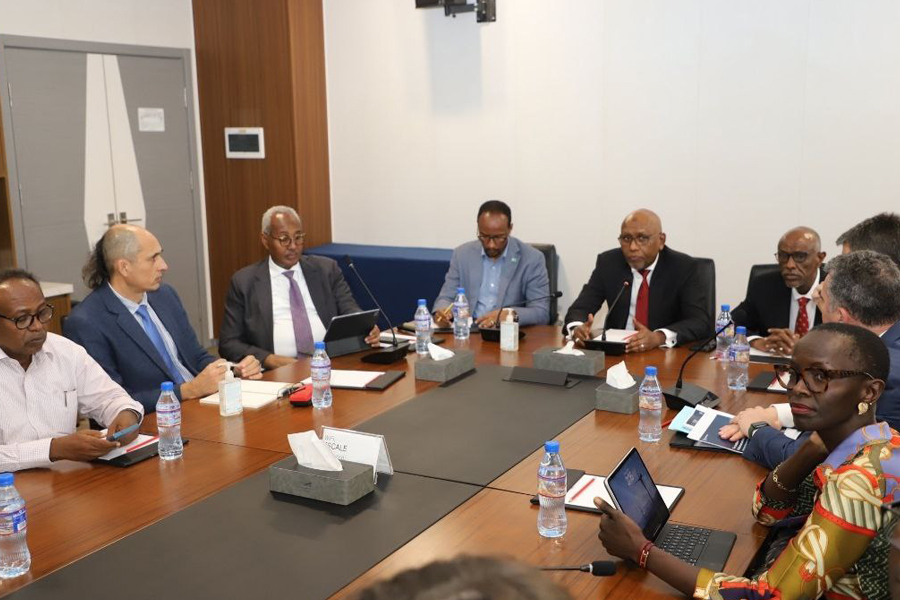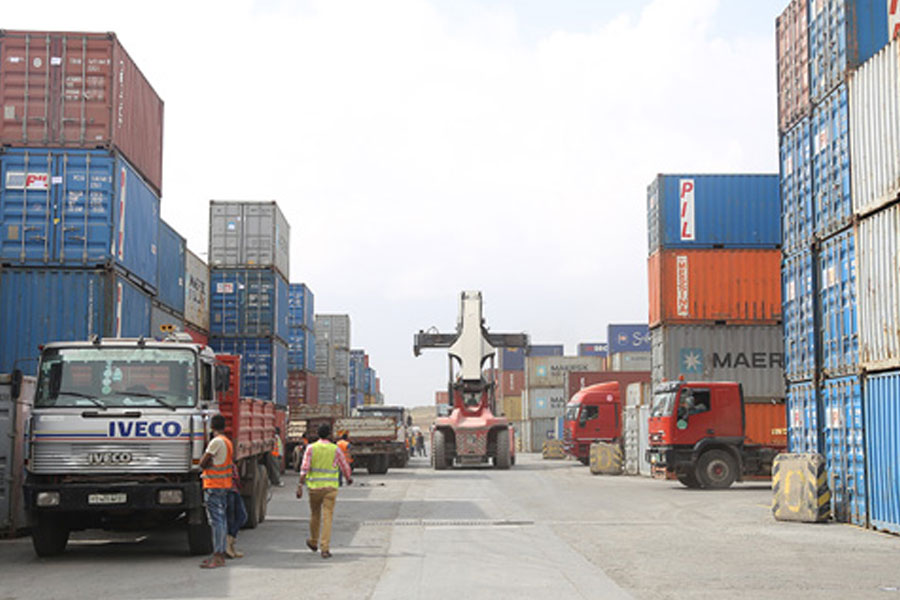
Commentaries | Apr 22,2022
Sep 8 , 2024
By Shang-Jin Wei
A major uncertainty looming over the global economy is who will be the next US president. While the United States (US) is home to only five percent of the world's population, and contributes 15pc of global value added, its role in shaping the world economy is unmatched. Given this, the trade policies of the next administration – whether led by Vice President Kamala Harris or former President Donald Trump – will undoubtedly have significant spillover effects.
We know what Trump is likely to do: raise US tariffs on imports from China to 60pc, and impose a 10pc tariff on imports from all other countries. These policies would hurt Chinese exports to the US the most, but many other countries' exports to the US would also decline, though a few – those providing substitutes for Chinese goods – might benefit.
Economies that depend on supply chains, including China, would also suffer. Many South Korean and Japanese firms export parts and components to China, which are combined with China-made parts and components, and possibly assembled into final products, for export to the US and elsewhere. This implies that any reduction in Chinese exports to the US would translate into a reduction in exports from Japan, South Korea, and others like them.
Efforts to bypass the problem by shifting supply chains to India, Vietnam, and elsewhere might partly offset this effect, but such solutions are likely to be costly and incomplete.
The effects of the "Trump trade shock" would not end there. If the tariffs hamper growth in China, Chinese demand for imports could fall, dealing yet another blow to economies for which China is a leading trading partner, such as Japan, South Korea, and Southeast Asian countries.
Trump's proposed tariffs would also have two less obvious effects – neither desirable for the US.
They would act as a drag on US exports to many countries, because the overall US trade deficit is determined less by America's trade policy than by a shortage of US national savings relative to investment. Given that Trump's proposed tariffs would be unlikely to raise US savings significantly, a reduction in US imports would be matched by a reduction in US exports. With that, America's relative importance as a trading partner for many countries would decline.
Trump's tariffs would undermine the world economic order that the US led the way in creating. The Trump measures would violate America's legal obligations under the World Trade Organization (WTO). But, with the US having spent years weakening the WTO's dispute-settlement mechanism, the body is unlikely to be able to check Trump's protectionism. This would reinforce the sense that the US does not play by the rules and would encourage other countries – particularly those grappling with high levels of inequality – to implement retaliatory tariffs or other protectionist policies.
Populist politicians often tout trade barriers as a solution to inequality.
The contours of Harris's likely trade policy are less clear. One can imagine her upholding US President Jeo Biden's approach to trade, which is slightly less erratic than Trump's, but remains a blight on Biden's economic-policy legacy. Continuing Biden's policies would still advance America's relative decline as a trading country, just not as quickly as Trump's tariffs would.
But there is another possibility. Taking inspiration from two other recent Democratic presidents, Barack Obama and Bill Clinton, Harris might seek to revive US leadership in global trade, not least by rejoining the Comprehensive & Progressive Trans-Pacific Partnership (CPTPP), with Australia, Brunei, Canada, Chile, Japan, Malaysia, Mexico, New Zealand, Peru, Singapore, and Vietnam.
The CPTPP evolved from the Trans-Pacific Partnership (TPP), an agreement that Obama spearheaded but that was never ratified owing to Trump's 2017 decision to withdraw from it. Thanks to the Japanese leadership, the CPTPP was ratified the following year. Beyond expanding market access among member countries, the CPTPP imposes institutional requirements affecting the conduct of state-owned enterprises (SOEs), government procurement, and subsidy rules. Given this capacity to induce institutional reform within member countries, the CPTPP can be considered a kind of "WTO plus."
The CPTPP might even drive reform among prospective members. Though China does not currently meet the agreement's requirements, it has applied to join, signalling its willingness to reform SOEs and market access. A CPTPP that includes China but not the US is hardly in America's interest.
A Harris administration might also reverse previous administrations' tariffs on Chinese imports, which amount to a tax on US consumers, especially middle-class and low-income households. Harris needs to explain to the American public that tariffs are self-defeating, as they raise the cost of living without creating new jobs for American workers.
There is no guarantee that Harris will pick the right trade advisers or overcome protectionist pressures within her party. But if she does – if she combines a relatively open trade policy with domestic redistribution – she may usher in a global trade revival that boosts the US economy and enhances US global leadership. With Trump, by contrast, there is little reason to expect anything more than another negative shock to global trade, resulting in far more losers than winners.
PUBLISHED ON
Sep 08,2024 [ VOL
25 , NO
1271]


Commentaries | Apr 22,2022

Radar | Sep 07,2025

Fortune News | Jun 22,2024

Commentaries | Sep 16,2023

Radar | Mar 06,2021

Commentaries | Oct 15,2022

My Opinion | Jun 26,2021

My Opinion | Jan 05,2019

Fortune News | Dec 04,2021

Radar | May 08,2021

Photo Gallery | 175178 Views | May 06,2019

Photo Gallery | 165403 Views | Apr 26,2019

Photo Gallery | 155706 Views | Oct 06,2021

My Opinion | 136783 Views | Aug 14,2021

Dec 22 , 2024 . By TIZITA SHEWAFERAW
Charged with transforming colossal state-owned enterprises into modern and competitiv...

Aug 18 , 2024 . By AKSAH ITALO
Although predictable Yonas Zerihun's job in the ride-hailing service is not immune to...

Jul 28 , 2024 . By TIZITA SHEWAFERAW
Unhabitual, perhaps too many, Samuel Gebreyohannes, 38, used to occasionally enjoy a couple of beers at breakfast. However, he recently swit...

Jul 13 , 2024 . By AKSAH ITALO
Investors who rely on tractors, trucks, and field vehicles for commuting, transporting commodities, and f...

Oct 18 , 2025
The political establishment, notably the ruling party and its top brass, has become p...

Oct 11 , 2025
Ladislas Farago, a roving Associated Press (AP) correspondent, arrived in Ethiopia in...

Oct 4 , 2025
Eyob Tekalegn (PhD) had been in the Governor's chair for only weeks when, on Septembe...

Sep 27 , 2025
Four years into an experiment with “shock therapy” in education, the national moo...

Oct 18 , 2025 . By NAHOM AYELE
In a sweeping reform that upends nearly a decade of uniform health insurance contribu...

Oct 18 , 2025 . By BEZAWIT HULUAGER
A bill that could transform the nutritional state sits in a limbo, even as the countr...

Oct 18 , 2025 . By SURAFEL MULUGETA
A long-planned directive to curb carbon emissions from fossil-fuel-powered vehicles h...

Oct 18 , 2025 . By BEZAWIT HULUAGER
Transaction advisors working with companies that hold over a quarter of a billion Bir...